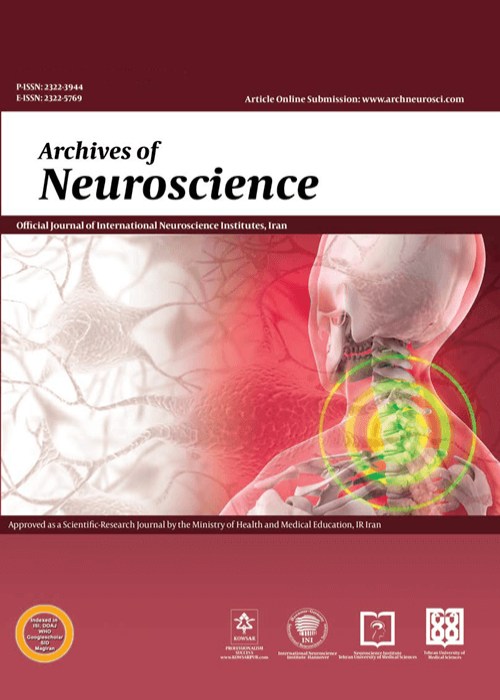Assessing the Possible Effect of Depression on Driving Behavior: A Cross-sectional Study
Driving as a complex behavior pattern is influenced by a set of conscious and unconscious factors. One of the most important causes of traffic accidents in Iran is human factors, which include the driver's mental status, personality traits, mental illnesses, or psychiatric disorders. Depression is one of the most common psychiatric disorders affecting driving behavior.
The aim of this study was to examine whether depression may affect driving performance.
This cross-sectional study was done on 100 participants who were divided into two groups, patients with major depressive disorder (MDD) and the healthy control group. Driving behavior was assessed by the Manchester Driving Behavior Questionnaire (MDBQ), and three computerized tests [Tower of London Test, Wisconsin Card Sorting Test (WCST), and reaction time] were used to evaluate the participants’ neuropsychiatric characteristics. The results were compared between the two groups using SPSS version 19.
There were 51 cases in the MDD group (male = 59%, female = 41%) and 50 patients in the non-depressed group (male = 22%, female = 78%). The mean age of the group with MDD and the control group was 38 ± 8 and 36 ± 9 years, respectively, with no significant differences (P = 0.23). The results showed that the highest mean reaction time (875 ± 198, P = 0.018) was related to the depressed non-risky drivers, and the depressed risky drivers showed the worse function in all domains of WCST (trials to complete first category: 28 ± 23, P = 0.002, total error: 33 ± 9, P = 0.001, and perseveration error: 15 ± 9, P = 0.009) in comparison with another group. Considering the mean score of the tower of London test, the non-depressed non-risky drivers showed the shortest time (219 ± 172, P = 0.001) spent on doing the task, while the depressed non-risky drivers showed the longest mean latency time (213 ± 96, P = 0.001).
The findings of the present study showed that depression is associated with deficits in multiple cognitive domains, such as executive function, which may lead to a significant decline in different aspects of driving behavior.
- حق عضویت دریافتی صرف حمایت از نشریات عضو و نگهداری، تکمیل و توسعه مگیران میشود.
- پرداخت حق اشتراک و دانلود مقالات اجازه بازنشر آن در سایر رسانههای چاپی و دیجیتال را به کاربر نمیدهد.


